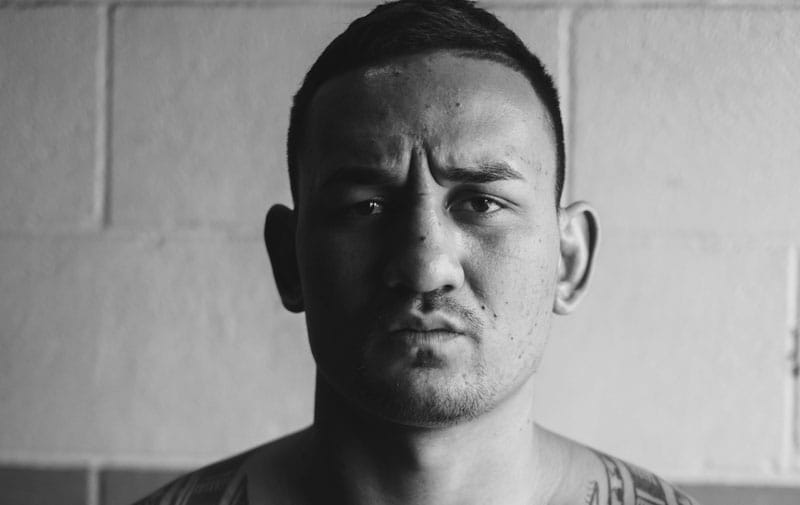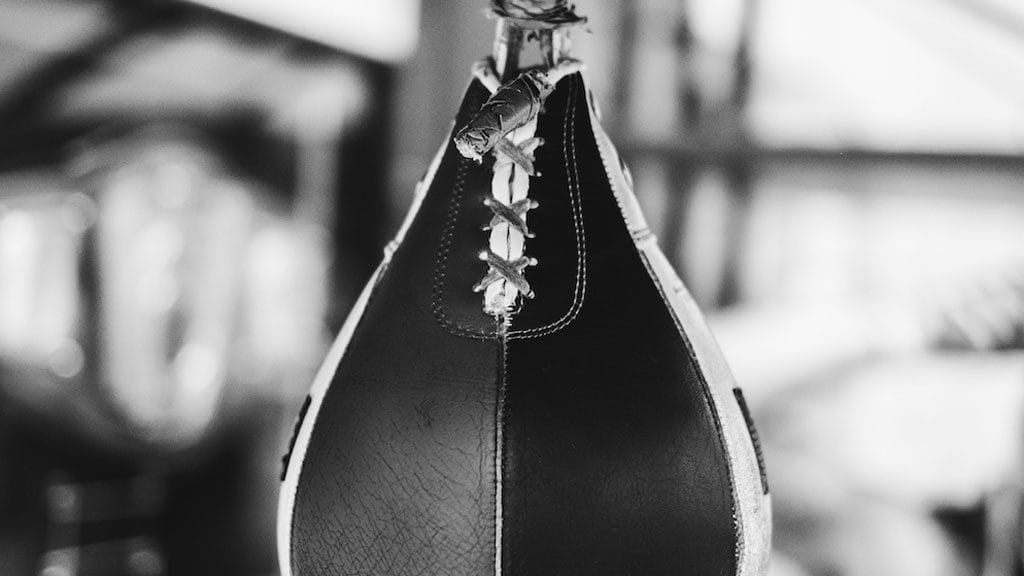“Our Town Has So Much Pride.”
Mixed martial artists Max Holloway and Yancy Medeiros speak about their unbreakable bond with Oʻahu’s West Side and giving something for their community to rally around.
When Max “Blessed” Holloway knocked out José Aldo in the final bout of the Ultimate Fighting Championship 212 event in Rio de Janeiro, Brazil, cheers rang out like firecrackers across the Hawaiian Islands. The 25-year-old mixed martial artist from Waiʻanae had claimed his title as the undisputed UFC featherweight champion.
Between that win in June 2016 and a welterweight victory for another native son, Yancy “The Kid” Medeiros, after opening the night’s main card event with a crisp left hook to his opponent, Erick Silva, their stomping grounds of West Oʻahu, a rumbling ocean away, felt like the epicenter of the sports world.
It’s been a rapid-fire year for the two since those career-defining wins abroad. We visited Holloway and Medeiros during a late-afternoon training session at Waiʻanae Boxing Gym, which is just a short drive from Medeiros’ childhood home, and where Holloway still regularly trains. The duo appeared more focused and relaxed than ever.
Your careers have taken you traveling all over the world. What does your hometown have that nowhere else has?
MAX: The air. It’s different. There’s nothing like the West Side air, I’ll tell you that much. People always think I’m kidding, but there’s something in the air, man, that makes us a different breed. The West Side is a very “you get what you give” kind of a place. At the end of the day, the people here will give you the shirt off their back—if you show nothing but aloha, you’ll only get aloha back. Waiʻanae is a special place.
YANCY: Our town has so much pride. I feel that not just in myself, but everyone around me. Everything we do, we do it with all our heart. This place has so much harmony and love. People outside of Waiʻanae don’t always see that, they see our stereotyped life.
Which is?
YANCY: Growing up, you hear, “Oh, you’re from Waiʻanae?” They see tattoos, they hear you’re a fighter, and then you’re seen as a bad guy from a rough neighborhood. I don’t feel that way about us at all. I wanted to change that aspect of how we’re perceived.
MAX: The media jumps all over the bad stuff. Where we’re from gets a bad shake in that way.
Have you ever felt that being where you’re from, Waiʻanae and Mākaha, people underestimate you?
MAX: I’ve felt people try to hold me to a lesser standard, telling me I’m not supposed to do this and that. But, that’s not me, that’s not Waiʻanae, period. I always say that if society tries to suppress the people here it’s because they see greatness in us, and there’s lots of it on the West Side. They’re just scared to see us trying and succeeding.
YANCY: I’ve never tried to prove anything to anyone. I just try to show people exactly the person I am, that I’m no different than anybody. Being where we’re from, being tough is like, that’s the big thing. But, even as a kid, I’ve always been totally fine with backing down from a fight. This is the town I was born and raised, so my home is a sanctuary, that’s my outlook.
At the gym today, the owner hung up a banner of you, Max, right next to your championship belt. And, Yancy, one of the kids asked you to sign his headgear. How does that make you both feel—to know the whole community, old and young, is so proud of you both?
MAX: It’s surreal. I’m blessed to do something good for my community and the state. All these little kids, you give them hope. Older people, too—a lot of my fans are grandmas and grandpas—they come up to me and say, “Eh, you’re the fighter kid, yeah?” [Laughs] As for the young ones, it’s about giving them hope, showing them that I came from here, I’m rooted here, graduated from the schools here.
YANCY: That’s the best thing about it, the kids look up to you. It brings balance to the job, this barbaric sport, creating that positive outlook for them. It motivates me to do what I do. Look, in the ring, I’m over here trying to take heads off, but not outside it. I’m a martial artist, that’s my profession, and I know when to turn it on and off. That’s what kids need direction on, especially in our community. They need positive influences around them—that’s what we can do. You can be a peaceful person and still do this sport.
MAX: When I was in middle school they’d bring successful people not from Waiʻanae to speak to our classes, but, for me, it was always in one ear, out the other. What did they know about growing up here? I was one of those stubborn kids who didn’t want to listen. Now, the kids out here have people who are actually from the West Side—myself, Yancy, my older brother, Sam Kapoi. I want to inspire the next generation and be that difference.
Max, what’s something most people don’t know about Yancy?
MAX: A lot of people think Yance is just this funny guy. You’d never think this guy is a fighter. We’re kind of like the same person, we’re from the same hood, we joke around, this and that, but when it’s time for business, he gets down to it. He’s a hard worker.
And, Yancy, what about Max?
YANCY: Max is a kid at heart. That’s what I love about the guy. People don’t realize he’s just a typical kid from a small town who has all this belief and confidence in himself. He’s a prideful person who’s also very humble and modest. He hardly goes out. He loves video games. He’s a fat kid stuck in a skinny body—he loves to eat. [Laughs] Put it this way, he can eat over 10 churros at Disneyland. I get off one churro and feel like I’m going to have a heart attack, but he’s over there in the corner of the park grindin’. Unreal, brah.
Image Gallery






